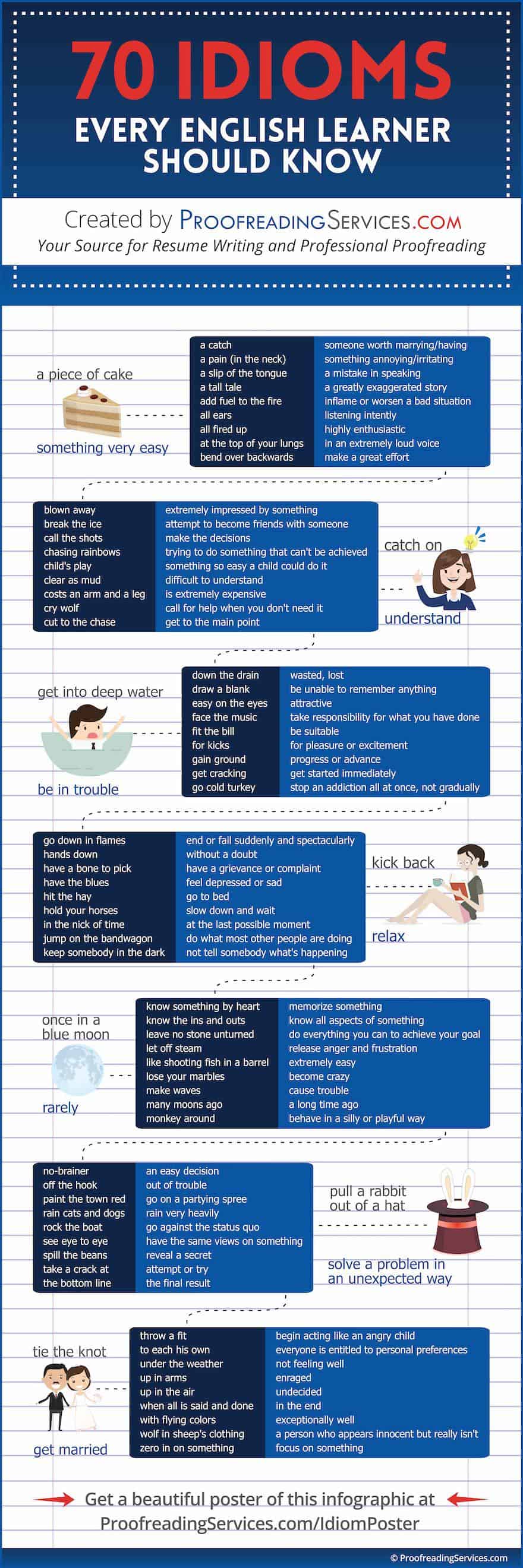What is an Idiom?
Simply put, it is an expression that makes no sense when translated literally into another language. In our own language we take these expressions for granted. It may be a no-brainer or a piece of cake for us to understand the meaning in our own language (see what I did there?). But to a non-English speaker, these expressions make no sense.
An idiomatic expression is something as simple as “to be hungry.” In Spanish, French, and Italian you “have hunger.” The verb is different, hence the idiomatic nature. Languages are full of these colloquial idiomatic expressions.

Below find an infographic with over 50 English idioms. These Idioms are important to know, and according to Orwell, equally important to avoid in writing!





